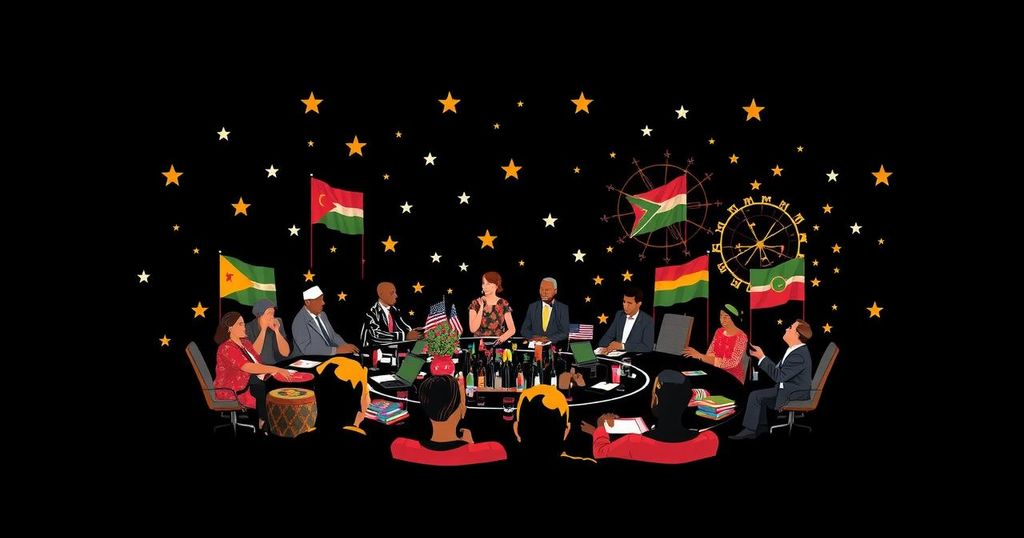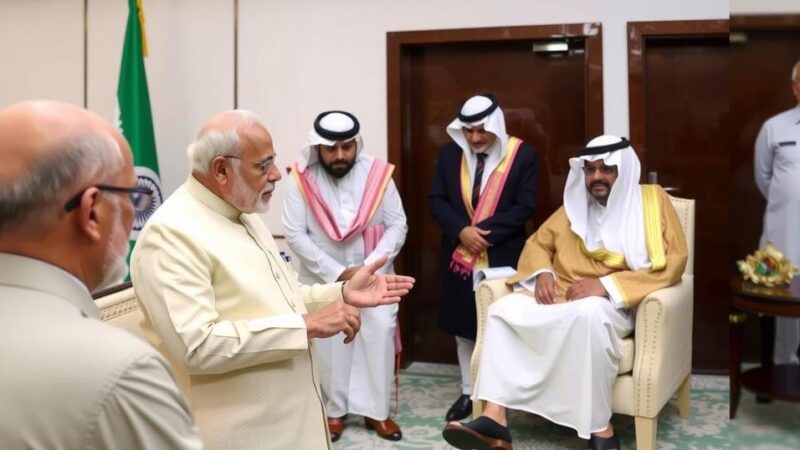South Sudan peace talks have resumed after a four-month pause, following the sacking of a government delegation. Negotiations, aimed at integrating concerns from opposition groups into the 2018 peace agreement, are taking place in Nairobi amid significant political and economic challenges. The postponement of elections and issues related to human rights laws are among the critical points being addressed in this renewed dialogue.
Peace talks in South Sudan have recommenced after a four-month hiatus, which included the sacking of a government delegation. These discussions are pivotal in addressing the ongoing conflict that has significantly impacted the nation’s economy. The dialogue is occurring between the government and opposition groups that were not signatories to the 2018 peace agreement, which concluded a devastating civil war leading to the deaths of over 400,000 individuals. Named Tumaini, meaning hope in Swahili, these talks began with a commitment to peace in May but faced interruptions following President Salva Kiir’s dismissal of the previous negotiating team.
The newly appointed government representatives had difficulties traveling to Nairobi for the discussions, though reasons for both the sacking and travel complications were not disclosed. President Kiir clarified that these negotiations are not intended to replace the existing 2018 peace agreement, rather they aim to incorporate concerns from opposition factions. Despite the ongoing peace efforts, South Sudan has postponed its elections from December 2024 to 2026, primarily due to logistical issues related to voter registration amidst an economic crisis. This has resulted in civil servants not receiving salaries for over a year, compounded by disruptions in oil exports due to a damaged pipeline in neighboring Sudan.
Participants in the dialogue voiced concerns regarding a new law facilitating detentions without arrest warrants, highlighting its implications for human rights. Chief mediator Lazarus Sumbeiyo has urged all involved parties to address and resolve remaining issues promptly. Pagan Amum, leading figure from the South Sudan Opposition Movement Alliance, emphasized the necessity of adhering to previous agreements to prevent the nation’s descent into chaos. Kuol Manyang Juuk, representing the government, likewise called for unity and suggested that discussions should build on existing frameworks rather than rehash prior negotiations.
The peace talks in South Sudan represent a critical effort to stabilize a country that has endured long-standing conflict and humanitarian crises. Following the end of a civil war in 2018, which concluded with a peace agreement, the nation has still faced challenges in governance, economic recovery, and human rights. The current negotiations involve factions that were not included in the initial accords, indicating ongoing divisions within the country. The postponement of elections further complicates the situation, as there are concerns regarding governance and stability. The external factors, such as the ongoing civil unrest in Sudan, also impact South Sudan’s economic viability, especially concerning its oil exports, which are essential for revenue generation.
The resumption of the peace talks in South Sudan after a prolonged standstill emphasizes the ongoing struggle for stability in the nation. With a new government delegation appointed and pressing issues regarding governance and human rights still on the table, the outcome of these discussions is crucial. Urgent attempts to address the concerns of both the government and opposition groups highlight the importance of collective commitment to peace. As stakeholders express optimism, it is essential to recognize the gravity of this juncture for South Sudan’s future.
Original Source: apnews.com







